2023 RSA Annual Conference Partners and Supporters
The 2023 RSA Annual Conference is supported by a number of organisations and partners which are listed below:
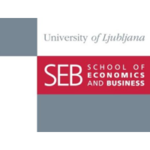
The #RSA23 is kindly hosted by The School of Economics and Business at the University of Ljubljana. The SEB LU is both a national leader and an internationally recognised academic and research institution in the fields of business and economics. We strive to become perceived as the world-renowned institution for the quality of our academic programmes and achievements in education and research.
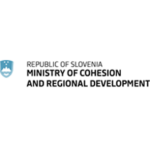
At the Ministry of Cohesion and Regional Development, we are responsible for the implementation of European cohesion policy and development. We take care of the use of funds provided by the European Structural Funds and the Cohesion Fund, as determined by the current legal order in the European Union.
In our role as a national governing body, we include ministries, government departments and other stakeholders in this process. We coordinate and monitor their activities in the implementation of cohesion policy and report to the government. We provide the conditions for the establishment, maintenance and operation of the information system for monitoring and evaluating the implementation of the cohesion policy. We advise governments and ministries in adopting measures and acts related to the implementation and monitoring of development and cohesion policy. We also take care of the coordination of development planning documents and the consistency of national development planning documents with the development documents of the European Union and other international organizations. We also perform management tasks for the needs of other financial mechanisms.

We are pleased to be working with the Ljubljana Tourism Board as part of the #RSA23. Ljubljana (pop. 293,000) is one of the smallest European capitals. It’s never crowded – but also never boring. 50,000 university students give it its youthful appeal, and as an economic and cultural hub of Slovenia, it has a lot to offer to locals and visitors alike.
- An exciting mix of different cultural traditions
- One of Europe’s top new culinary destinations
- A city with a green soul
- The perfect conference and congress city
- Unforgettable events and venues
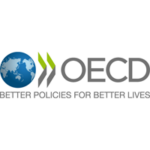
Centre for Entrepreneurship, SMEs, Regions and Cities
We help local and national governments unleash the potential of entrepreneurs and small and medium-sized enterprises, promote inclusive and sustainable regions and cities, boost local job creation and implement sound tourism policies.
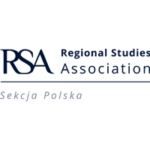
The Association for Regional Studies – Polish Section was founded in 1998 and brings together members interested in regional and local studies. The aims of the Association are: a) to promote and disseminate knowledge on regional development and local self-government, b) to initiate and assist in studies and research on the development and functioning of regional and local territorial units, c) to disseminate regional studies among practitioners, d) to conduct international cooperation in the theory and practice of regional development. Its activities focus on organising conferences and seminars on spatial aspects of socio-economic development, co-publishing the quarterly “Regional and Local Studies” and providing scientific expertise and studies for public institutions.
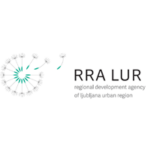
The Regional Development Agency of Ljubljana Urban Region (RRA LUR) is a development agency that connects the 25 municipalities of the region, including the capital city Ljubljana. Through its connecting role, it also exercises a positive influence beyond the borders of the region. Through a variety of activities and projects, we facilitate a shift to a wider circle of local, regional, national and European stakeholders. Interdisciplinary skills and a committed team of experts enable us to transform the challenges of the future into development opportunities that will contribute to a better quality of life and a responsible and innovative society working for the good of people and the environment. We are confidently and reliably paving the way for development by providing resources, representing interests, and above all, creating new opportunities. As an active instigator of social innovations, we help realise these opportunities by participating in the formulation of strategies, strategic documents and business models and by implementing projects that often serve as a proving ground for various models and solutions, the further implementation of which has great development potential. We actively spread knowledge and experience and, by understanding the needs of individuals and society, facilitate positive changes.
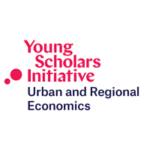
The Urban and Regional Economics Working Group of the Young Scholars Initiative explores the role of geographical space on economics and development, as well as the role of cities and the emerging importance of the political economy of urbanization.

Taylor & Francis is one of the world’s leading academic publishers. For more than two centuries Taylor & Francis has been committed to the highest quality scholarly publishing, and this remains our goal today. Our purpose is to foster human progress through knowledge – something we’ve been doing since the Enlightenment. We aim to promote a positive future for everyone through our work.
Our imprints include Taylor & Francis, Routledge, CRC Press, F1000 Research and Dovepress. We’ve published over 145,000 book titles and over 2,700 journals. Our mission is to support, validate and connect the work of researchers and other knowledge makers, so that it can make the fullest possible contribution. For more details visit the website at www.tandfonline.com/
Taylor and Francis publishes the RSA’s five (soon to be six) journals https://www.regionalstudies.org/publications/ and the Policy Impact Book Series https://www.tandfonline.com/toc/rpim20/current
Routledge publishes the RSA’s Regions and Cities Book Series https://www.routledge.com/Regions-and-Cities/book-series/RSA
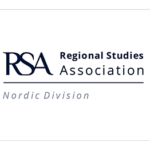
NORSA was formally established at a meeting in Umeå, Sweden, in September 2008.
NORSA is a non-political, voluntary, self-governing organisation with non-profit objectives andshares the aims and objects of the Regional Studies Association, which are:
(a) to promote education in the field of regional studies (those studies which relate to the economic, physical and sociological problems of development in major areas) by the exchange of ideas and information.
(b) to stimulate and aid studies and research into regional planning, development and functions and to disseminate the results of such research.

Edward Elgar Publishing is a leading international academic and professional publisher with a cutting edge program of books across the Social Sciences, including in Regional Studies. Built on strong author relationships, we are an independent, family-owned and multi-award winning company.
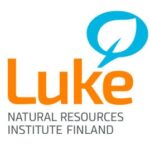
The Natural Resources Institute Finland (Luke) is a research organisation operating under the Ministry of Agriculture and Forestry of Finland. Luke’s task is to promote competitive business based on the sustainable use of renewable natural resources, as well as wellbeing and the vitality of the countryside.
Luke employs some 1,300 people. We operate in 24 locations in Finland and our headquarter is in Helsinki. Luke’s President and CEO is Johanna Buchert.
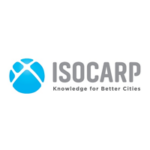
The International Society of City and Regional Planners (ISOCARP) is a member-led global association of experienced professional planners, with a vision of making cities and human settlements inclusive, safe, resilient and sustainable. It was founded in 1965 in a bid to bring together highly-qualified planners in a global network, and it’s currently numbering about 800 individual and institutional members from more than 90 countries. ISOCARP is recognised by the UN, UNHCS and the Council of Europe.
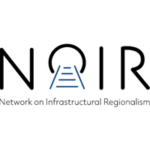
The RSA Research Network on Infrastructural Regionalisms (NOIR) engages research at the intersection of infrastructure and regional studies. By placing the region at the center of the ‘infrastructural turn’, the Network reflects both the increased conceptual, geographic, and political importance of infrastructure and the endemic crises of access (social space), expertise (technology), and resources (governance) that varied provision of infrastructures within regions can cause. NOIR offers multiple forums to debate the terrains of regional infrastructure, develop collaborative research projects, and facilitate meaningful dialogue between academics and practitioners.

The Global Network on Financial Geography (FinGeo) is an open and interdisciplinary network of academics, practitioners and experts interested in research on the spatiality of money and finance and its implications for the economy, society, and nature. FinGeo has close to 1000 members worldwide and is in the process of launching Finance & Space journal, in collaboration with the Regional Studies Association.
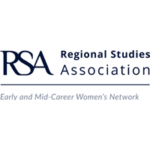
The Women in Regional Studies and Regional Science is a group where early and mid career women from the fields of regional studies and science join to discuss topical issues in the field. The Network was set up in 2018 with the inaugural workshop held in the UK. The international network has grown and there have been several successful in-person and online workshops.
We also support the Women’s Network via a closed Women’s Network Facebook group (https://www.facebook.com/groups/614254942304587/). This was an outcome from our earlier in-person RSA Networking Workshops for Early and Mid-Career Women in Regional Studies and Science. If you would like to join, please click on the link above and request to join.
As part of our ongoing commitment to supporting early and mid-career women in regional studies, we have a very active Women’s Network WhatsApp group. This group continues to grow and has now reached over 78 members. Members of the group regularly engage in discussion and conversation, sharing tips and disseminating information.
If you are interested in joining the WhatsApp group, please email Alex for more information.

The European Union’s economic well-being in an ever-changing world lies at the heart of our project Europe’s economy. We analyse the capacities of the EU and those of its member states to strengthen Europe’s fundamental economic base by reducing disparities and achieving higher levels of cohesion between European regions.
Nordregio is recognised and respected as a leading Nordic research institute within the broad research fields of regional development, policy, and planning. Nordregio specializes in applied research that analyses and evaluates the development trends in policy areas central to Nordic regional economic growth, competitiveness, and sustainable development. Nordregio contributes towards meeting existing and future challenges facing the Nordic countries by facilitating cooperation, knowledge sharing and learning across national, regional, and local stakeholders in the search for sustainable Nordic policy solutions and good practices. Nordregio also participates in European research programmes (i.e., ESPON, Horizon Europe, Interreg), generating knowledge and data, and performing territorial analyses on transnational and pan-European levels.
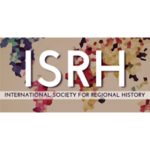
Regional history is a field in the historical sciences made up of professionals who undertake historical work in regional perspective.
Regional history operates with research questions connecting time and space (history and regions) on any scale (from localities to international level). National states do not have any special role in the research work. In regional history, regions are understood as evolutionary processes. Borders, belonging, localities, and minorities are potential but not the only subjects of research.

ESSPIN is…Economic, Social and SPatial INequalities in Europe in the Era of Global Mega-trends.
OUR GOAL
Is to re-examine the nexus
of social, economic and spatial inequalities in the EU
The rapidly changing environment of the first two decades of the new century was characterized by the emergence of new factors or dynamics that exerted multiple pressures on welfare and socio-spatial cohesion in Europe and elsewhere and raised new challenges for policy and collective action…
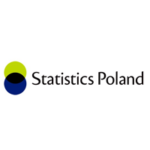
Statistics Poland (formerly known in English as the Central Statistical Office[2] (Polish: Główny Urząd Statystyczny, popularly called GUS)) is Poland’s chief government executive agency charged with collecting and publishing statistics related to the country’s economy, population, and society, at the national and local levels